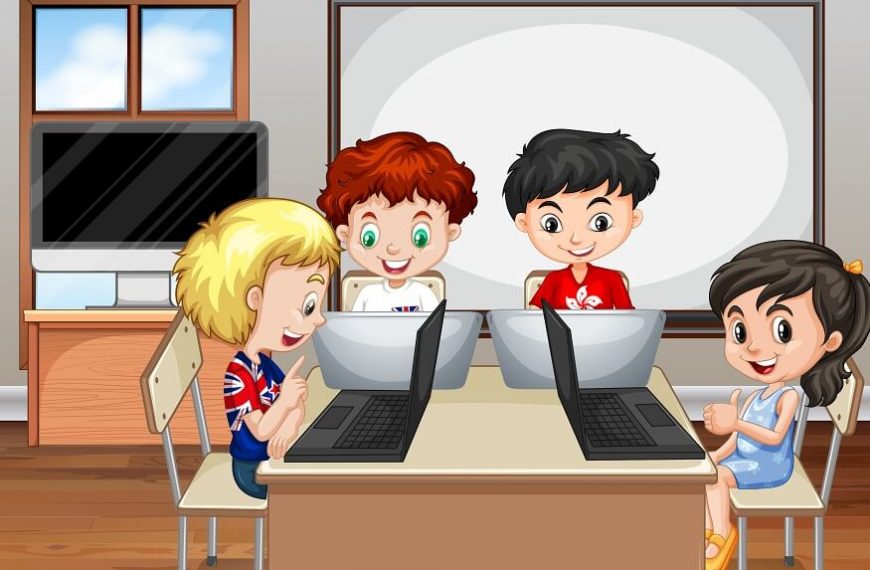Imagine this: A curious eight-year-old, wide-eyed and enthusiastic, sits in front of a computer, engrossed in creating a virtual world of their own. They feverishly type lines of code, commanding objects to move, dance, and interact. Outsiders would think it’s a scenario from a science fiction film, but for this child, it’s an exhilarating journey into the realm of computer science and programming.
It is no longer a choice in our modern digital environment to introduce children to computer science at a young age; it is a requirement.
Computer science activities designed for children are increasingly recognised as a crucial component of their education. In this blog, let us explore the importance of teaching children computer science and programming. Let us delve into the fundamental principles and offer actionable advice for getting started on this exciting educational path.
The Importance of Computer Science for Kids
In a world where technology is rapidly advancing, understanding computer science basics for kids is a stepping stone to success. The importance of computer science cannot be overstated. Here’s why computer science is crucial for your child’s development:
Children who study computer science learn how to break down difficult issues into smaller, more manageable pieces. They gain vital life skills like situational analysis, critical thinking, and effective problem-solving techniques.
Children can express their creativity through computer programming by creating games, applications, or websites. It encourages innovation, allowing people to develop fresh concepts and solutions.
In the digital age, the definition of literacy has changed. It means more than just reading and writing. Children who study computer science are better equipped to navigate the digital world safely and efficiently.
Opportunities for Employment: As the employment market changes, many upcoming professions will need at least a basic understanding of computer science. Early exposure to this sector will provide your youngster with a wide range of employment options.
Problem-Based Learning: Computer science is an ideal platform for problem-based learning. Kids learn best when they’re engaged in hands-on, interactive activities. Coding and programming provide precisely that.
Computer Science Basics for Kids
Now that we’ve established the significance of computer science, let’s dive into the basics, starting with the fundamentals that every child should know:
- Algorithmic Thinking
- Coding Concepts
- Computational Thinking
- Hands-on Coding
- Projects and Challenges
At its core, computer science is about creating algorithms – step-by-step instructions that computers follow to complete tasks. Teaching kids to think algorithmically involves breaking down problems into smaller steps and organising them logically. You can start with everyday tasks like making a sandwich, encouraging them to describe each step in detail.
Coding is the language of computers. Introduce your child to the basic building blocks of coding:
Commands: Teach them how to give commands to a computer to make it perform tasks.
Variables: Explain the concept of variables as placeholders for information.
Loops: Show them how to create loops to repeat actions.
Conditional Statements: Help them understand how to make decisions in code.
Computational thinking is a problem-solving approach used by computer scientists. It involves:
Decomposition: Breaking down problems into smaller, manageable parts.
Pattern Recognition: Identifying patterns within problems.
Abstraction: Removing unnecessary details to focus on the essential elements.
Algorithm Design: Creating a plan to solve a problem systematically.
Once your child grasps the basics, they can start hands-on coding. There are numerous child-friendly programming languages and platforms designed for beginners, such as Scratch, Blockly, and Tynker. These platforms use visual elements to make coding more accessible and enjoyable for kids.
Encourage your child to apply their knowledge by working on projects and challenges. They can develop a personal website, make easy games, or interactive storytelling. They will feel more confident and have a stronger understanding of computer science thanks to this practical experience.
Computer Science Activities for Kids
Engaging in computer science activities for kids is a fantastic way to make learning fun and interactive. Here are some exciting activities to get your child started:
- Coding Games
- Robotics
- Coding Clubs
- STEM Toys
There are several coding games and apps designed specifically for kids. Games like “CodeCombat” and “Lightbot” offer a gamified learning experience, where kids solve puzzles by writing code. It’s a great way to keep them engaged while they learn.
Robotics kits like LEGO Mindstorms and Ozobot teach kids the principles of programming in a hands-on way. They can build and program their robots, fostering creativity and problem-solving skills.
Joining a coding club or attending coding workshops can expose your child to a community of like-minded peers. These clubs often offer collaborative projects and competitions that make learning more exciting.
Invest in STEM (Science, Technology, Engineering, and Mathematics) toys like Sphero or LittleBits. These toys are designed to teach kids about technology and programming through play.
The EuroKids Advantage
While teaching kids computer science and programming is essential, it’s equally crucial to choose the right educational institution that can provide a holistic learning experience. EuroKids, a renowned name in early education, offers a comprehensive curriculum that includes computer science activities for kids.
At EuroKids, we understand the importance of introducing children to computer science at an early age. Our specially designed programs aim to explore the advantages of computer education in schools and
Foster creativity and innovation through hands-on coding projects.
Develop your ability to think critically and solve problems.
Give people access to coding platforms and cutting-edge technology.
Encourage collaboration and teamwork through coding clubs and workshops.
With EuroKids, your child will embark on an exciting journey of discovery, where they’ll not only learn computer science basics for kids but also develop a love for technology and innovation that will stay with them for life.
Teaching kids computer science and programming is an investment in their future. It equips them with essential skills, fosters creativity and innovation, and opens doors to numerous career opportunities. By introducing your child to computer science activities for kids, you’re giving them a head start in a world driven by technology.
So, encourage your little ones to explore the fascinating world of computer science, and consider EuroKids as your partner in this journey. Together, we can nurture young minds and prepare them for a bright and technologically advanced future.
















